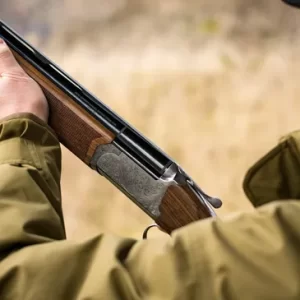How to Choose the Right Shotgun Instructor
When selecting a shotgun coach, it is important to first conduct an honest assessment of your existing skill level and goals. Are you a complete beginner looking to learn basic shooting techniques? Perhaps you have been informally shooting clays recreationally for some time but now wish to pursue formal training to progress your abilities. Or maybe years of hunting have provided you with fundamental proficiencies, but you desire coaching tailored specifically to sporting clays. Identifying current capabilities, as well as areas for improvement, will help determine the baseline qualifications to look for in an instructor.
Upon reflecting on present skills, one should ask trusted contacts such as shooting range staff or fellow marksmen for coach referrals suitable for one’s needs. Additionally, meet with candidates to evaluate interpersonal rapport, as you will be training closely together. Inquire about credentials pertinent to your situation, such as previous work with novice shooters or specialized certifications in the sporting clays discipline. Clearly communicate goals upfront so measurable benchmarks may be established. Fees and cancellation policies should also be discussed to align expectations. Taking time to thoroughly assess your starting point and vet coaches on relevant qualifications will help match you with instruction optimal for taking the next step, whether you are new to the sport or working to reach the next competitive level.

Instructors generally fall into three tiers based on the experience level of students they work with:
Level 1 Instructors cater to newcomers who need an introduction to the basics of shotgun. Areas generally covered include gun handling and safety procedures, proper loading/unloading, achieving a consistent mount, developing eye dominance, estimating proper leads, follow through after a shot, terminology, and rules for sporting clays, along with considerations before one’s first time competing. A Level 1 coach provides a critical foundation so students can safely and confidently step onto a course for the first time.
Level 2 Instructors tend to work with intermediate-level students who have either worked previously with Level 1 shotgun instruction or have actively competed in sporting clays for a few years. Their focus is on helping enthusiasts diagnose small abnormalities in their form and fine-tuning techniques. Common student skill levels range from C Class to A Class rankings, potentially into early AA Class if they demonstrate the capability and motivation for precision refinement. In certain cases, an individual might train long-term with a Level 2 coach over the course of several years as they progress through the Class levels.
Level 3 Coaches have extensive expertise in diagnosing subtle nuances in high-level shooters’ form and offer specialized approaches to maximizing scoring potential. They act more as performance optimizers rather than foundational instructors, with students generally being expert tournament competitors. The objective is not teaching textbook methods or skills from scratch, but rather tailoring minute adjustments unique to each shooter to squeeze out every possible hit.
Choosing Your Instructor
When researching options, there are several additional factors one should weigh:
- Local clubs might have staff instructors or regular coaches who offer training on-site for members. Traveling instructors may also periodically hold clinics at different locations.
- Group clinics allow students to learn together and potentially ask questions based on observing fellow participants. However, some may prefer private one-on-one lessons to focus fully on their individual needs.
- Evaluating instructor websites can offer philosophy and style insights based on training videos, client testimonials, blog posts, etc. This helps assess the teaching demeanor.
- Fellow club members may be able to provide referrals or reviews based on first-hand experience training with potential coaches.
- Interviewing past clients can clarify both strengths and weaknesses. Quality instructors will gladly provide references without hesitation.
- Having an introductory conversation helps gauge interpersonal rapport and teaching methods tailored to unique learning preferences. Complete transparency around skill level sets proper expectations upfront.
Finding the ideal shotgun instructor is a blend of objective qualifications and subjective compatibility. Defining needs, performing due diligence, and trusting instincts will lead to the best mentor for one’s journey.
